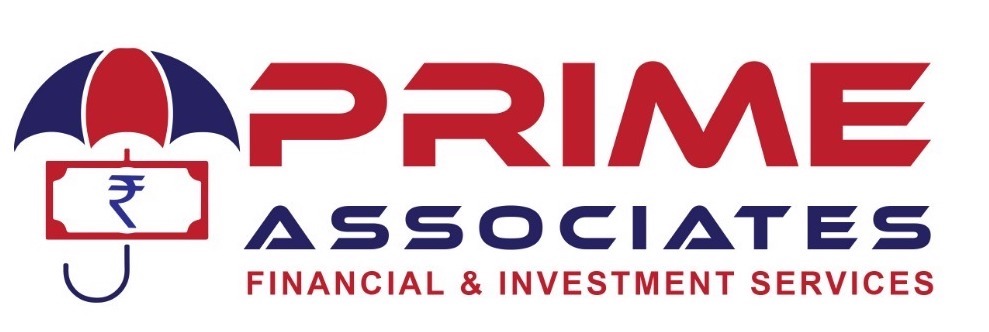Saturday, 14 February 2026

98453 44950 / 86606 65616
Avnish Jain is the Head of Fixed Income at Canara Robeco Asset Management Company, Robeco's joint venture in India. Avnish with over 19 years of experience across many segments of the industry is actively involved in managing the fixed income funds which include Canara Robeco Balance Fund, Canara Robeco Monthly Income Plan, Canara Robeco Indigo Fund and Canara Robeco Medium Term Opportunities Fund.
Prior to joining Canara Robeco, Avnish was a Senior Fund Manager with ICICI Prudential AMC. His stint also includes, Head of Fixed Income with Deutsche Asset Management, Senior Consultant - Professional Services with Misys Software Solutions, Head of Trading with Yes Bank, Senior Trader-Proprietary Trading with ICICI Bank and Senior Analyst with UTI Securities Exchange Ltd. Avnish Jain has done his B.Tech from IIT Kharagpur and post-graduation from IIM Kolkata.

Answer: Canara Robeco has a stringent credit risk framework for selection of a company for inclusion in its Credit Universe. This policy is approved by the Board of Trustees (BoT) and Board of Directors (BoD) with authority given to the Risk Management Committee (RMC) for execution of the policy. While both quantitative and qualitative factors are considered, focus is on financial viability of the company over medium to long term. The analysis starts from short listing companies through a rating filter (generally AA and above ratings). Subsequently the analyst does a thorough analysis based on publicly available information such as past balance sheets, quarterly reporting, third party research reports and credit rationales. The analysis focuses on capital ratios, liquidity ratios, profitability and other operational parameters to form financial profile of the company. Company meetings are undertaken to discuss in detail the company financials, state of the business and growth plans, future capex plans, funding needs and any other information that may impact the debt repayment capability of the company. In terms of qualitative factors, industry prospects, size of the company and its relative standing in its industry, and track record of the promoters and the management team are some of factors. The analyst further reaches out to other analysts and market participants to gather any information on the company which may influence the decision.
Answer: As discussed above, any company is analysed thoroughly in terms of financial, operational and management parameters to determine the credit worthiness within the framework approved by the Board of Trustees. The analyst than prepares a detailed note and presents in the RMC for approval for inclusion in the credit universe. After a detailed discussion covering the financial parameters of the company, industry outlook, standing of the company within its industry and track record of promoters, the RMC can either accept or reject the proposal. In some cases the RMC may ask for more information to decide. The RMC further approves the overall investment limit for a particular company and also whether the investments are short term (say upto 3 months/1year) or long term (more than 1 year). Any proposals outside the BoT/BoD approved credit framework ( in terms of rating profile or tenor of investment), need necessarily go to the Board for approval, even if the RMC thinks that the company may present good investment opportunity.
Answer: Answer: In any debt portfolio there are primarily 3 kinds of risks i.e. Credit risk, interest rate risk and liquidity risk. Credit risk is the key risk in a debt portfolio as a default it can lead to capital loss. While interest rate risk can lead to volatility depending on interest rate cycle, it does not lead to capital loss. In recent times, mutual funds have seen some credit defaults leading to loss of capital and lower returns, which lead to concern among investors on quality of debt portfolios. In past few years, credit funds have seen good inflows as the overall YTM (yield-to-maturity) was higher compared to normal corporate bond portfolios (generally comprising AAA/AA assets). Credit fund typically invest a large portion of the assets in lower rating paper (A+ or below) or structured assets (e,g. papers secured by shares, receivables, guarantees etc.). While these papers would give higher yields, they would also have much higher default risk and will be highly illiquid. The market has seen defaults both in normal papers as well as structured papers.
Investors need to diversify across quality of debt funds as well to mitigate the risks arising from credit. All debt portfolios, except for funds exclusively investing in government securities (e.g. gilt funds) will be exposed to credit risk depending on rating profile of the portfolio. There are some funds, like Corporate bond funds, which are mandated to invest bulk of the assets in high quality (AA and above rating) papers. Gilt funds do not credit risk but have interest rate risk. By diversifying across different credit classes of debt funds, investors can reduce the overall credit risk of the portfolio.
Answer: Last year was a volatile year in terms of rates with RBI hiking rates twice in 1HFY2019 and then cutting in Feb'19. They further cut rates in April'19, reversing the hike in 1HFY2019. With inflation remaining low and well below RBI's target of 4%, rates should remain benign. Globally, the US Federal Reserve (FED) have paused after hiking rates continuously since 2016. This should also create an environment, globally, of lower interest rates in the current year. While inflation remains low and growth is also slowing down, elections are likely key in determining rate direction. Return of the incumbent government is likely to be positive for markets. Any result which results in a hung parliament could likely lead to higher rates in the short term, though over long-term rates should trend downwards as inflation is well below RBI's target of 4%.
Answer: Retail investors who are not well informed on credit and interest rate should look to invest in low duration or short duration funds. These funds generally have low exposure to interest rate risk while carrying moderate credit risk. For investing in dynamic/ gilt or credit funds, they need to take advise of their financial advisors. Further they should diversify across various types of debt funds as well as fund houses to mitigate risks further.
Answer: Market rates have not reacted much post rate cut by RBI in April 2019 and have inched up. This could be attributed to uncertain global conditions, higher oil price, persistent liquidity deficit and overhang of elections. This has presented a good opportunity, especially in short term corporate bond space (2-4 years) where the spreads are very attractive (in range of 150-200bps). Since there is further expectation of rate cuts later this year (as inflation remains subdued), investing in high quality corporate bond portfolios is likely to give good returns over 2-3 year period, with low duration and credit risk. Investor can look at low duration, short duration and corporate bond funds.
Imp. Note: We are registered NJ Wealth Partners and this interview published is sourced from NJ Wealth with due permissions. Reproduction of this interview/article/content in any form or medium by any means without prior written permissions of NJ India Invest Pvt. Ltd. is strictly prohibited.